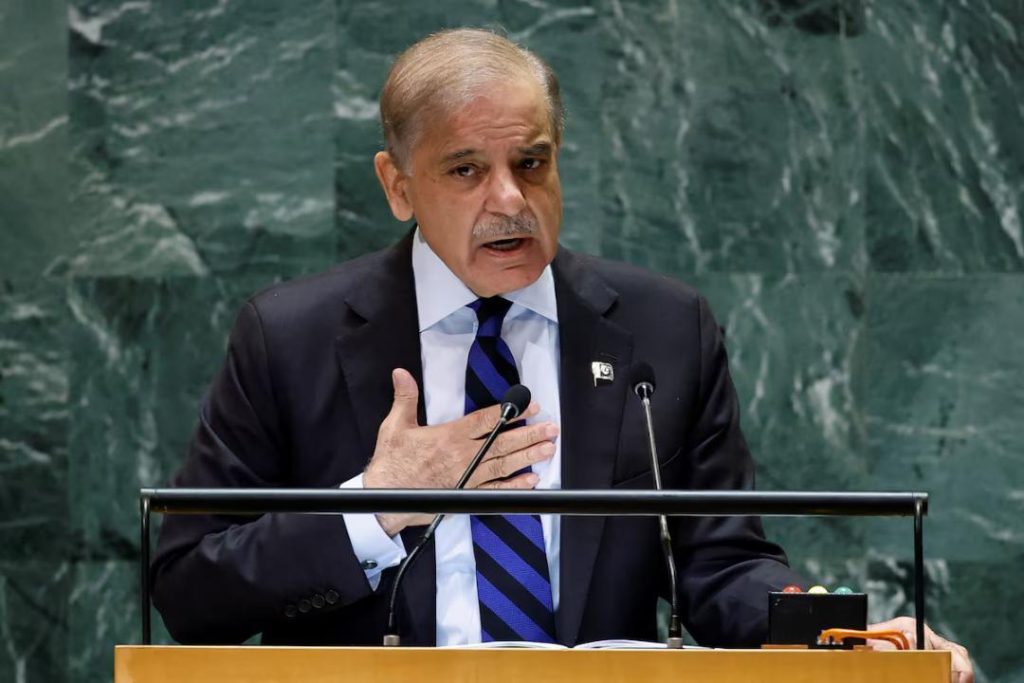
We are Ready to Talk with India for Peace: Pakistan PM
The recent escalation of tensions between India and Pakistan has left the world on edge, with both nations engaging in a series of skirmishes along the Line of Control (LoC). However, in a significant development, Pakistan’s Prime Minister Shehbaz Sharif has announced that he is ready to engage in peace talks with India, following the agreement to a ceasefire between the two nations.
During a visit to the Kamra air base, where he interacted with officers and soldiers involved in the recent military confrontation with India, Sharif made the comments, signaling a shift in Pakistan’s stance towards India. The Prime Minister’s statement has been seen as a significant move towards de-escalation, and an attempt to pave the way for a peaceful resolution to the long-standing conflict between the two nations.
The ceasefire agreement, which was reached after days of intense fighting, has brought some relief to the region, and has also sparked hopes of a possible breakthrough in the stalled talks between the two nations. The agreement has been seen as a crucial step towards reducing tensions, and has been welcomed by both domestic and international stakeholders.
However, the road to peace will not be easy, and will require a significant amount of effort and compromise from both sides. The two nations have a complex and troubled history, with a long list of unresolved issues, including the Kashmir dispute, which has been a major point of contention between the two.
Despite the challenges, Sharif’s willingness to engage in peace talks is a significant development, and has been seen as a positive step towards reducing tensions. The Prime Minister’s statement has also been welcomed by India, which has also expressed a desire to resolve the issues between the two nations through peaceful means.
Sharif’s statement is all the more significant given the recent history of tensions between the two nations. Just a few weeks ago, India and Pakistan were engaged in a series of skirmishes along the LoC, which had raised concerns about the potential for a larger conflict.
The tensions between the two nations had been building for some time, with both sides trading accusations of ceasefire violations and military aggression. The situation was further complicated by the presence of extremist groups in the region, which had been using the conflict as an opportunity to carry out attacks and destabilize the region.
However, in a significant development, the Indian and Pakistani armies agreed to a ceasefire on February 25, following a series of meetings and negotiations between the two nations. The ceasefire agreement was seen as a major breakthrough, and had been welcomed by both domestic and international stakeholders.
The agreement had been made possible by a series of diplomatic efforts, including talks between senior officials from both nations. The talks had been facilitated by the United Nations, which had been working behind the scenes to bring the two nations to the negotiating table.
In addition to the ceasefire agreement, the two nations have also agreed to work towards a peaceful resolution to the Kashmir dispute, which has been a major point of contention between the two. The dispute has been ongoing for decades, and has been a major source of tension between the two nations.
The Kashmir dispute is a complex issue, with both nations claiming ownership of the region. Pakistan has been demanding a plebiscite to determine the future of the region, while India has been resisting the demand, citing the region’s strategic importance.
However, in a significant development, Sharif’s statement has also hinted at a possible compromise on the Kashmir issue. The Prime Minister has indicated that Pakistan is willing to engage in talks with India on the issue, and is open to finding a peaceful solution.
Sharif’s statement has been seen as a significant move towards de-escalation, and has been welcomed by both domestic and international stakeholders. The statement has also been seen as a significant shift in Pakistan’s stance towards India, and has been interpreted as a sign of a possible thaw in relations between the two nations.
However, the road to peace will not be easy, and will require a significant amount of effort and compromise from both sides. The two nations have a long history of conflict, and will need to work together to find a peaceful resolution to their differences.
Despite the challenges, Sharif’s willingness to engage in peace talks is a significant development, and has been seen as a positive step towards reducing tensions. The statement has also been welcomed by India, which has also expressed a desire to resolve the issues between the two nations through peaceful means.
In conclusion, Sharif’s statement is a significant development, and has been seen as a positive step towards reducing tensions between India and Pakistan. The statement has been welcomed by both domestic and international stakeholders, and has been interpreted as a sign of a possible thaw in relations between the two nations.
However, the road to peace will not be easy, and will require a significant amount of effort and compromise from both sides. The two nations have a long history of conflict, and will need to work together to find a peaceful resolution to their differences.
As the two nations move forward, it is essential that they prioritize dialogue and diplomacy over aggression and conflict. The world is watching, and is eagerly waiting to see whether the two nations can put aside their differences and work towards a peaceful resolution.






